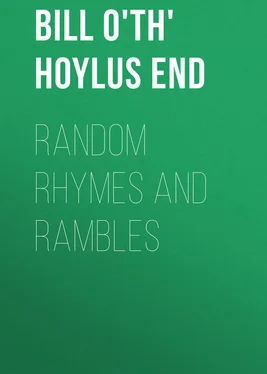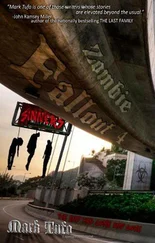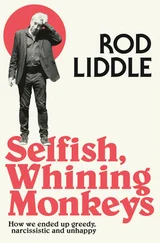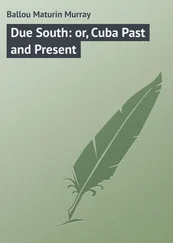Bill o'th' Hoylus End - Random Rhymes and Rambles
Здесь есть возможность читать онлайн «Bill o'th' Hoylus End - Random Rhymes and Rambles» — ознакомительный отрывок электронной книги совершенно бесплатно, а после прочтения отрывка купить полную версию. В некоторых случаях можно слушать аудио, скачать через торрент в формате fb2 и присутствует краткое содержание. ISBN: , Издательство: Иностранный паблик, Жанр: foreign_antique, foreign_prose, foreign_poetry, на английском языке. Описание произведения, (предисловие) а так же отзывы посетителей доступны на портале библиотеки ЛибКат.
- Название:Random Rhymes and Rambles
- Автор:
- Издательство:Иностранный паблик
- Жанр:
- Год:неизвестен
- ISBN:http://www.gutenberg.org/ebooks/39198
- Рейтинг книги:4 / 5. Голосов: 1
-
Избранное:Добавить в избранное
- Отзывы:
-
Ваша оценка:
- 80
- 1
- 2
- 3
- 4
- 5
Random Rhymes and Rambles: краткое содержание, описание и аннотация
Предлагаем к чтению аннотацию, описание, краткое содержание или предисловие (зависит от того, что написал сам автор книги «Random Rhymes and Rambles»). Если вы не нашли необходимую информацию о книге — напишите в комментариях, мы постараемся отыскать её.
Random Rhymes and Rambles — читать онлайн ознакомительный отрывок
Ниже представлен текст книги, разбитый по страницам. Система сохранения места последней прочитанной страницы, позволяет с удобством читать онлайн бесплатно книгу «Random Rhymes and Rambles», без необходимости каждый раз заново искать на чём Вы остановились. Поставьте закладку, и сможете в любой момент перейти на страницу, на которой закончили чтение.
Интервал:
Закладка:
His feast and revels are not such,
As those we hear and see,
No princely splendour does he indulge,
Nor feats of revelry;
But in the orphan schools they are,
Or in the cot with her,
The widow and the orphan of
The shipwrecked mariner.
When stricken down with age and care,
His good old neighbours grieved,
Or loss of family or mate,
Or all on earth bereaved;
Go see them in their houses,
When in peace their days may end,
And learn from them the name of him,
Who is their aged friend.
With good and great his worth shall live,
With high or lowly born;
His name is on the scroll of fame,
Sweet as the songs of morn;
While tyranny and villany is
Surely stamped with shame;
A nation gives her patriot
A never-dying fame.
No empty titles ever could
His principles subdue,
His queen and country too he loved, —
Was loyal and was true:
He craved no boon from royalty,
Nor wished their pomp to share,
For nobler is the soul of him,
The founder of Saltaire.
Thus lives this sage philantropist,
From courtly pomp removed,
But not secluded from his friends,
For friendship’s bond he loves;
A noble reputation too
Crowns his later days;
The young men they admire him,
And the aged they him praise.
Long life to thee, Sir Titus,
The darling of our town;
Around thy head while living,
We’ll weave a laurel crown.
Thy monument in marble
May suit the passer by,
But a monument in all our hearts
Will never, never die.
And when thy days are over,
And we miss thee on our isle,
Around thy tomb for ever
May unfading laurels smile:
There may the sweetest flowers
Usher in the spring;
And roses in the gentle gales,
Their balmy odours fling.
May summer’s beams shine sweetly,
Upon thy hallowed clay,
And yellow autumn o’er thy head,
Yield a placid ray;
May winter winds blow slightly, —
The green-grass softly wave,
And falling snow-drops lightly
Upon thy honoured grave.
Coud az Leead
An’ arta fra thee father torn,
So early e thi yuthful morn,
An’ mun aw pine away forlorn,
E greef an’ pane;
Fer consalashun aw sall scorn
If tha be taen.
O yes, tha art, an’ aw mun wail
Thy loss thro’ ivvery hill an’ dale,
Fer nah it is too true a tale,
Tha’rt coud az lead.
An’ nah thee bonny face iz pale,
Thart deead, thart deead.
Aw’s miss thee wen aw cum fra t’shop,
An’ see thi bat, an’ ball, an’ top;
An’ aw’s be awmost fit ta drop
Aw sall so freat,
And O my very heart may stop
And cease to beat.
I’d allus aimed if tha’d been spar’d,
Of summat better to hev shared
Ner what thi poor oud father fared,
E this coud sphere;
Yet after all aw’st noan o’ cared
If tha’d stayen here.
But O! Tha Conkerer Divine,
’At vanquished deeath e Palestine,
Tak to thi arms this lad o’ mine
Noan freely given,
But mak him same as wun o’ thine,
We thee e heven.
The Factory Girl
Sho stud beside hur looms an’ watch’d
The shuttle passin in,
But yet hur soul wor sumweer else,
’Twor face ta face wi’ John.
They saw hur lips move az in speech,
Yet none cud heear a word,
An’ but fer t’grinding o’ the wheels,
This langwidge mite be heard.
“It spite o’ all thi trecherus art,
At length aw breeath again;
The pityin stars hez tane mi part,
An’ eased a wretch’s pain.
An’ O, aw feel az fra a chain,
Mi rescued soul is free,
Aw know it is no idle dream
Of fancied liberty.
“Extingwish’d nah iz ivvery spark,
No love for thee remains,
Fer heart-felt love e vane sall strive
Ta lurk beneath disdain,
No longer wen thi name I hear,
Mi conshus colour flies:
No longer wen thi face aw see,
Mi heart’s emoshun rise.
“Catch’t e the burd-lime’s trecherus twigs,
To weer he chanc’d to stray,
The burd iz fassend fathers leaves,
Then gladly flies away.
Hiz shatter’d wings he soon renews,
Of traps he iz awair;
Fer by experience he iz wise,
An’ shuns each futshur snair.
Awm speikin nah, an’ all mi aim
Iz but to pleas mi mind,
An’ yet aw care not if mi words
Wi thee can credit find.
Ner du I care if my decease
Sud be approved by thee;
Or wether tha wi ekwal ease
Does tawk again wi me.
“But, yet tha false decevin man,
Tha’s lost a heart sincere;
Aw naw net wich wants comfert most,
Or wich hez t’mooast ta fear.
But awm suer a lass more fond and true
No lad cud ivver find;
But a lad like thee iz easily found,
False, faithless, and unkind.”
Bonny Lark
Sweetest warbler of the wood,
Rise thy soft bewitching strain,
And in pleasure’s sprightly mood,
Soar again.
With the sun’s returning beam,
First appearance from the east,
Dimpling every limpid stream,
Up from rest.
Thro’ the airy mountains stray,
Chant thy welcome songs above,
Full of sport and full of play,
Songs of love.
When the evening cloud prevails,
And the sun gives way for night,
When the shadows mark the vales,
Return thy flight.
Like the cottar or the swain,
Gentle shepherd, or the herd;
Best thou till the morn again,
Bonny bird.
Like thee, on freedom’s airy wing,
May the poet’s rapturous spark,
Hail the first approach of spring.
Bonny lark.
T’oud Blacksmith’s Advise ta hiz Son Ned
So, Ned, awm geen ta understand,
Tha’rt bahn ta join e wedlock band,
Ta travil thru life’s weeary strand,
Yond lass an’ thee.
But if yor joinin heart an’ hand,
It pleases me.
Nah tha’ll hev trubbles, Ned, ta bear,
Wile pushin thru this world o’ care,
An’ wat tha’ll hev it face ta stare,
Its hard ta tell;
Life’s ups and dahns tha’ll get thi share,
So pleas thisell.
Tha’rt weel an’ strong, long may it last;
But age an’ care creep on us fast;
Then akt az tha can luke at past
An’ feel no shame;
Then if tha’rt poor az sum ahtcast,
Tha’s noan ta blame.
Doant sport abaht an’ wagers bet,
But mind an’ shun that foolish set
At cannut mak ther awn ta fet,
Thaw shame ta say it.
An’ mind tha keeps fra being e dett,
An’ tha’ll be reight.
An’ stick fast hod o’ iron will;
Push bouldly on an’ feear no ill;
Keep Him e vue, whoas merces fill
The wurld sa wide.
No daht but His omnishent skill,
Al be thi guide.
So Ned, mi lad, tak this advise,
Prove wurth o’ yond lasse’s choise,
E yeears ta cum tha may rejoise,
Tha tuke hur hand;
An’ listened to thi father’s voise,
An’ hiz command.
Address ta mi Bed
Oud stocks on thee I first began
To be that curious crater man,
Ta travel thro this life’s short span,
By fate’s dekree;
Till aw fulfilled grate Nater’s plan,
An’ cease ta be.
Интервал:
Закладка:
Похожие книги на «Random Rhymes and Rambles»
Представляем Вашему вниманию похожие книги на «Random Rhymes and Rambles» списком для выбора. Мы отобрали схожую по названию и смыслу литературу в надежде предоставить читателям больше вариантов отыскать новые, интересные, ещё непрочитанные произведения.
Обсуждение, отзывы о книге «Random Rhymes and Rambles» и просто собственные мнения читателей. Оставьте ваши комментарии, напишите, что Вы думаете о произведении, его смысле или главных героях. Укажите что конкретно понравилось, а что нет, и почему Вы так считаете.












